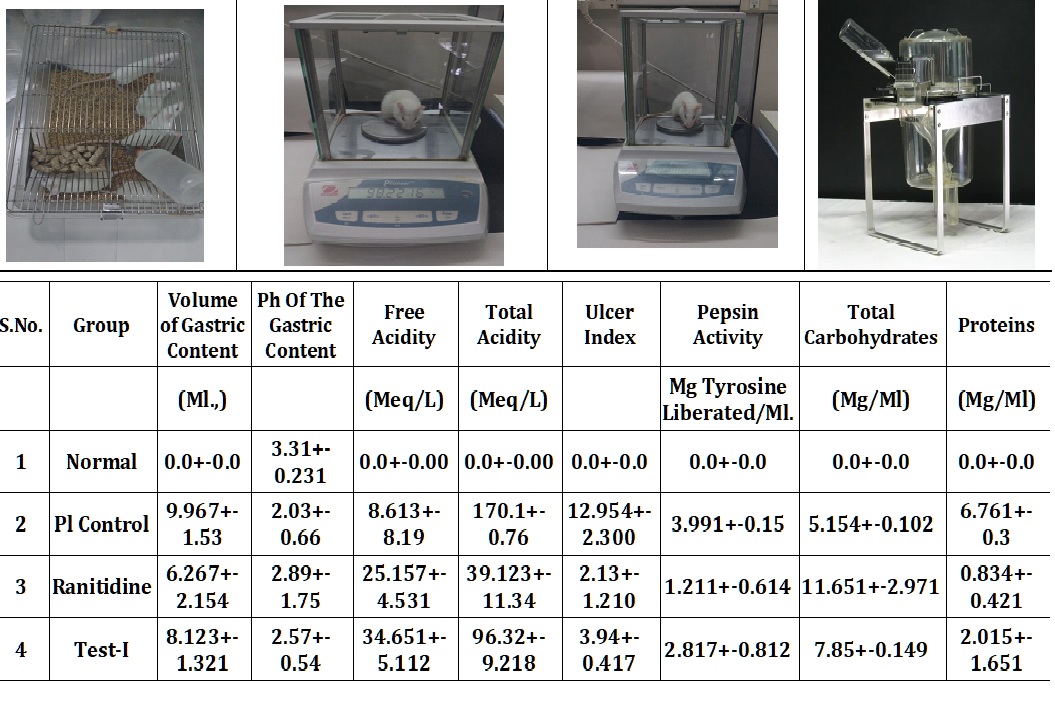Evaluation of Anti-Ulcer Activity of Godhuma Yusha Against Experimentally Induced Ulcers in Rats
DOI:
https://doi.org/10.47070/ijraps.v8i6.171Keywords:
Godhuma, Wheat, Yusha, Ulcer, Anti-ulcer, Rats.Abstract
Present study was an animal experimental study involving albino rats on whom peptic ulcer was induced and treated the same with the Godhuma Yusha or the wheat decoction to evaluate its role on the anti-ulcer activity. The plant material used for the study such as wheat grains were collected from the local farmers, shade dried and made into granules or powdered coarsely. Aqueous extract or the Godhuma Yusa was prepared by decoction method by adding the coarse powder of 100ml of drinking water and was boiled for 15 minutes. After cooling the supernatant was used to study the anti-ulcer activity. Healthy albino rats of wistar strain of either sex about 180–200mg used for the study were purchased and were caged individually and kept in air-conditioned room. Throughout the study, animals were maintained at normal laboratory conditions, at standard rat pellet diet, drinking water and libitum. Animals were being divided into four groups, consisting of six animals each. Control group (group – I) received 1% CMC (5ml/kg), positive control group (group– II) received 1% CMC (5ml/kg), test drug– 1 (group– III) received herbal suspension (5ml/kg), Test drug – 2 (group – IV) received herbal suspension in 1% CMC (5ml/kg). Total ulcer score, mean ulcer score, ulcer index, ulcer incidence were assessed before and after the intervention. The results were analysed statistically using student’s ‘t’ test and Mann whitney test. The present study showed that the test drug (Godhuma Yusha or the wheat decoction) has significant anti-ulcer activity as evidenced by bio-chemical parameters.
Downloads


